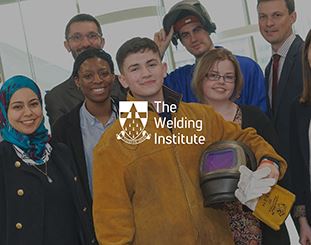|
What is Professional Membership of Professional Bodies/Institutions? – Meaning and Definition
What is a Professional Body?
A professional body (also referred to as a professional institute) can be defined as an organisation that holds individual members who are personnel associated with a specific profession, interest or occupation. Professional bodies will possess specific knowledge, skills and experience of academic principles related to its members’ professions or occupations which, in turn, can help support the professional development and advancement of its members.
What is Membership of Professional Bodies?
Membership of professional bodies means that an individual is affiliated/part of an organisation. The professional membership application process varies depending on the type of professional body that you are becoming a member of.
What is a Professional Membership?
Professional membership is the status that a member is given when they have joined a professional body. Professional memberships aim to support individuals professionally and aid them in progressing within their career/profession. It is an opportunity for industry professionals, such as professional engineers, to join an organisation that represents their work ethic and values to employers and clients.
What is the Role of Professional Bodies?
The overall role of a professional body is to facilitate the professional needs and interests of its members. Membership of any professional body gives you access to membership benefits specific to that institute. The roles of a professional body vary depending on the type of professional body that they are, for example, professional engineering institutions/bodies will be able to facilitate their members’ professional development through engineering-specific, industry-related benefits. Membership benefits typically include:
- Industry events including talks on relevant topics
- Networking events and networking opportunities
- Volunteer work and opportunities
- Professional advice from experts (such as licensed professional engineers)
- Work experience opportunities
- Registration with the Engineering Council (CEng, IEng or EngTech status)
- Prestige through using post-nominal letters
- Access to technical knowledge and information
Young Professional Membership
Being a member of professional engineering institution allows you to demonstrate to others your professionalism, particularly to potential employers or clients. You are not limited to being a member of only one professional body/institute, which allows you to access a much broader range of benefits. Having a professional membership on your CV indicates to employers that you are competent, due to both the process of gaining membership and being a member of a professional body/institute involving a high level of commitment.
As a student or graduate, becoming a member of a professional engineering institution offer access to resources that can help your academic studies. This includes libraries, databases, journals, specialist interest groups, networking opportunities and careers advice. Membership of a Professional Engineering Institution (PEI) will demonstrate to prospective employers you understand the requirement for professionalism in your industry, and that you have the necessary competence to fulfil your role.
What are Professional Engineering Institutions (PEI)?
As an engineer, becoming a member of a professional body/institution can be an important part of your professional portfolio. Licensed engineers can benefit from professional membership/registration due to it allowing you to be connected with personnel within the same field. It is an opportunity to enter a professional network, gain new contacts, skills and potential engineering work. Being a member of a professional body enables you to display the experience and knowledge that you have gained from your membership on your CV.
What is the Engineering Council?
The Engineering Council is the regulatory body for the engineering profession. They are responsible for the registration of Engineering Technicians (EngTech), Incorporated Engineers (IEng) and Chartered Engineers (CEng).
How do I register with the British Engineering Council?
To register with the Engineering Council in the United Kingdom, you must be a member of a professional engineering institution/body that is licensed to assess candidates. The process of registration will vary depending on the professional institution/body, however, the institute will assess your experience, qualifications and skills to best match which level of qualification with the engineering council you are eligible for.
Become a Member of The Welding Institute
The Welding Institute is a Professional Engineering Institution offering membership to engineers and technicians. We offer four levels of membership:
Find out more about becoming a Member and our Membership Benefits!

